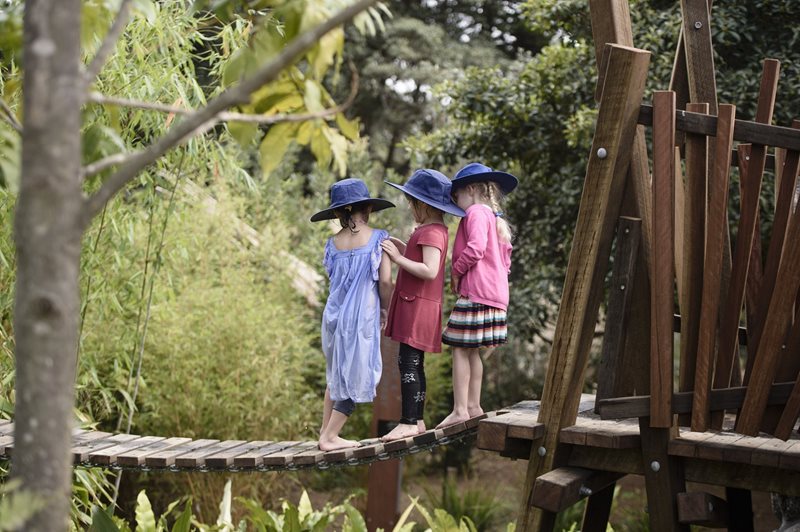Nature play keeps the doctor away
Sam Crosby and the team at the Ian Potter Children’s WILDPLAY garden in the heart of Centennial Parklands are part of a growing global movement to combat the nature deficit disorder epidemic. The WILDPLAY garden is the first purpose-built nature play space in NSW where children and adults are encouraged to explore the wild side of life.
“It provides children with the chance to get lost in the wonder of nature with dry creek beds, an artesian water play area, a bamboo forest, banksia tunnels, turtle mounds and Centennial Park’s first treehouse,” said Sam.
“Unlike a traditional playground, there’s nothing here that says, ‘you must play like this’ because it’s all about stimulating children’s imaginations and encouraging problem solving and critical thinking skills,” said Sam.
“Kids get hurt playing in playgrounds because they’re too boring. If we add natural challenges and risks kids slow down and make their own assessments,” said Sam.
Children that aren’t given the opportunity to make their own assessments can grow up getting hurt in much more serious ways too.
“There was a case in a university in England where first year students kept getting hit by cars because they were always driven everywhere and hadn’t learnt how to cross the roads safely,” said Sam.
Sam says this is why the wobbly bridge at the Ian Potter Children’s WILDPLAY garden is so popular and effective.
“Usually the first few times crossing the bridge the kids are quite cautious and then they speed up once they understand the mechanics and get more confident,” said Sam.

Go on an audio adventure
Find out more fun facts with nature play expert Sam Crosby at the Ian Potter Children’s WILDPLAY garden in this episode of the Royal Botanic Garden Sydney’s Branch Out podcast. Just hit play!
Visit the Ian Potter Children’s WILD PLAY Garden today!
Opening hours: 10.00 am - 5.00 pm daily.
How to find WILD PLAY: The entrance is off Grand Drive, opposite the York Rd gates, in Centennial Park, entrance. Look out for the directional signs once you are in the Park or visit our maps to see how to get here.
Price: Free.
Have your say
Help the Parklands and researchers from Western Sydney University to understand the outcomes of The Ian Potter Children’s Wild Play Garden. We are looking for adults and children who have visited the garden to take a quick 5 -10 minute online survey to tell us about their experience of visiting this nature play space.
The surveys for adults and children can be accessed here.